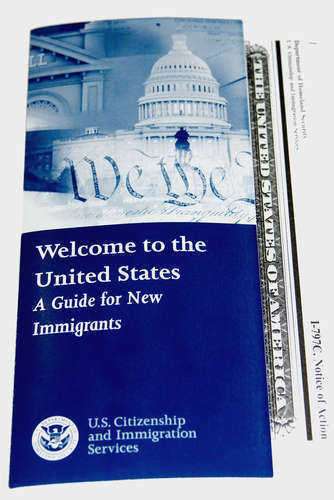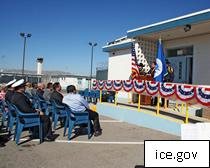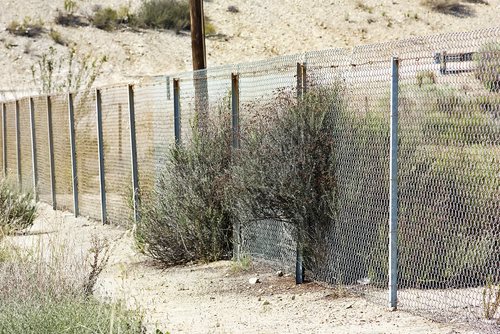Selective Service Act

The Selective Service Act: History, Purpose, and Significance
As the United States sought to contribute to the Allied Powers in World War I, President Woodrow Wilson and the Congress passed the Selective Service Act in 1917, establishing the conscription of men into military service. The law aimed to provide the necessary manpower to fight the war while preserving the nation’s freedoms and principles. In this article, we delve into the history, purpose, and significance of the Selective Service Act.
The Historical Context of the Selective Service Act
Before the enactment of the Selective Service Act, the United States had maintained a small professional army and a volunteer-based National Guard system. When World War I broke out in Europe, the U.S. initially declared its neutrality but later recognized the importance of contributing to the allied efforts. In 1916, the National Defense Act expanded the federal power to create a larger and more sophisticated army. However, voluntary enlistment and National Guard recruitment proved inadequate, and the U.S. entered the war with far fewer soldiers than its enemies.
As a result, President Wilson and the Congress passed the Selective Service Act on May 18, 1917. The act required all men from ages 21 to 30 to register for potential military service, with some exemptions for physical or mental disabilities, essential occupations, and religious or ethical beliefs. Under this law, more than 10 million men registered, and 2.8 million were drafted to serve in World War I. The conscription allowed for a much-needed expansion of the American Expeditionary Forces, which helped the Allies achieve victory.
The Purpose and Significance of the Selective Service Act
The Selective Service Act had several purposes, both immediate and long-term. First and foremost, the law aimed to provide the U.S. military with enough troops to fight effectively in World War I. The war was a total war that relied on the full mobilization of a nation’s resources, including its population. By drafting millions of men, the Selective Service Act bolstered the U.S. military’s numbers and thereby its chances of victory.
Secondly, the Selective Service Act demonstrated the government’s power to mobilize citizens for a common purpose. Conscription was an extraordinary measure that required a significant amount of public support and government legitimacy. The U.S. government had to convince the population that conscription was necessary for the survival of the nation and its values. The Selective Service Act also helped overcome internal divisions by making all men liable for military service, regardless of race, class, or ethnicity.
Finally, the Selective Service Act had long-term consequences for the nation’s relationship to war and military service. The act established the tradition of the draft, which would be used in several subsequent conflicts, such as World War II, the Korean War, and the Vietnam War. The draft became a contentious issue in American politics, as it raised ethical, legal, and practical questions about the role of the state in individual lives, the nature of military service, and the morality of war.
Conclusion
The Selective Service Act was an essential piece of legislation in U.S. history, both for its immediate contribution to the victory in World War I and its long-term impact on American society and politics. The Selective Service Act demonstrated the government’s power to mobilize citizens for a common purpose, regardless of their differences, and established the tradition of the draft that would be used in future conflicts. The Selective Service Act was also significant because it raised ethical, legal, and practical questions about the relationship between the citizen and the state, the nature of military service, and the morality of war. Ultimately, the Selective Service Act remains an important reminder of the costs and challenges of mobilizing a nation for war.
What is the Selective Service Act of 1917?
The Selective Service Act of 1917 set up the system that gives the federal government the power to maintain a database of all male citizens and immigrants between the age of 18 and 25 for possible conscription. In the event of the reinstitution of a military draft, the Selective Service database will provide the information of men to be conscripted.
Why do I register for the Selective Service?
Regardless of political views or personal philosophy, registration with the Selective Service is mandatory 30 days after a male citizen or immigrant turns 18. Failure to register with the Selective Service will disqualify the individual from receiving federal aid, such as student loans and grants. Additionally those that do not register with the selective service are not eligible for federal employment and immigrants will not be eligible for citizenship. Prosecution of individuals that do not register stopped in the 80s owing to the difficulty of proving that the failure to register was willful. One can only be punished for failing to register if the government can prove that the non-registration was willful and the individual was well aware of the legal obligation.
Who has to register for the Selective Service?
There are very few exceptions to the Selective Service registration requirements. Conscious objectors must register and can only note their objection to military service in the event that they are called for a draft. All male immigrants of the appropriate age must register, including refuges and illegal immigrants. The Selective Service does not investigate immigration status, but failure to register can disqualify any type of immigrant from future US citizenship.
Men with disabilities must also register as the system makes no differentiation. If the draft were to be called, all potential recruits would be subject to examination, where they are likely to receive and exemption. As long as the disabled man lives at home and can leave the house on his own accord, he must register. Disabled men in institutions and hospitals need not register.
Men already in the military or in military academies do not need to register, although if they leave the service before they turn 26, they must register. Non-immigrants, such as international students and tourists need not register for the Selective Service.
Males at least 17 years and 3 months can begin to register for the Selective Service with the information automatically added to the system once they turn 18.
How do I register for the Selective Service?
There are several ways to register for the Selective Service.
Generally, a man may go to the Post Office and fill out the form there, leaving the SS# space blank until he manages to obtain one. The forms are available at all US Post Offices.
High School students may register at their school with a staff member that is a Selective Service Registrar, who trained and authorized to help students register in the system.
For college students, the easiest method is to fill out a Federal Student Financial Aid (FAFSA) application, usually required by most schools and “checking” Box 22 on the form to register. Further instructions will be sent by the Department of Education. For those filling out the form online, they will be directed to the Selective Service website with instructions.
Additionally, all males may register online at the Selective Service System website:
(https://www.sss.gov/RegVer/wfRegistration.aspx)
How would the Selective Service be used in the event of a draft?
If a draft were to be called by the President and approved by Congress in a time of crisis, then conscription will be used to bolster the volunteer army. Selected Service Offices and Boards on the local and district level will be activated for the purposes of administering the draft.
A lottery will be organized and individuals will be drafted in order of age, with 20 year olds eligible for drafting first, picked by a lottery ball that corresponds to their date of birth. The lottery then proceeds to 21, 22, 23, 24 and 25 year olds. It will be rare to have a situation where 18 and 19 year olds are drafted, but their lottery order will proceed after the 25 year olds. The lottery is a new provision to ensure fairness in drafting individuals and ending arbitrary terms in selecting individuals to be drafted.
After the conscripts are selected, the applicants must report for examination. Should they pass the physical examination, the conscript will have ten days to file for an exemption, postponement or deferment. All conscripts have the right to meet with the local board before being inducted to the military. In the event that no exemption has been filed or that the claim has been denied, a local Selective Service Board will issue notices for the male to report for military induction at a processing station. This entire process must take no more than 193 days to deliver recruits to the military.
How would one avoid military service if selected by the Selective Services?
There exists the process for men that pass medical evaluations to apply for certain classifications that would exempt them from military service. These classifications include:
• 1-O Conscientious Objector- conscientiously opposed to both types (combatant and non-combatant) of military training and service – fulfills his service obligation as a civilian alternative service worker.
• 1-A-O Conscientious Objector – conscientiously opposed to training and military service requiring the use of arms – fulfills his service obligation in a noncombatant position within the military.
• 2-D Ministerial Students – deferred from military service.
• 3-A Hardship Deferment – deferred from military service because service would cause hardship upon his family.
• 4-C Alien or Dual National – sometimes exempt from military service.
• 4-D Ministers of Religion – exempted from military service.
Unlike previous wars, college students may no longer avoid military service by remaining in college until the age of 26. The regulations defer the draft process until after the end of the current semester.
Conscientious Objectors must prove that the beliefs that bar him from military service play a central role in his life before the local board. These beliefs are usually but not always religious and can be moral or ethical. The reasons for objection cannot be political or motivated by self-interest. The person’s lifestyle must reflect their beliefs. An appeal can be filed with the Selective Service District Appeal board and the appeal may even proceed as high as the National Appeal Board if the district decision is not unanimous.
Some aliens, via treaty agreements with their home country can be exempted from American military service, although this option usually disqualifies that alien from US citizenship and reentry into the country.
What is Alternative Service?
Men that successfully receive conscientious objector status are placed the in the Selective Service Alternative Program. From there, they will need to perform service vital to national health or safety. This includes conservation, elder care, education and healthcare and typically lasts for 24 months.
What is the JAMRS?
Data collected from Selective Service is provided to the Joint Advertising Marketing Research & Studies, which is a Pentagon database of 16-25 year olds that collects personal information for recruitment purposes. Data is also cleaned from the DMV and the College Board. With this data, which includes racial and ethnic information, the Federal government will target individuals for recruitment. Individuals can opt out of the database by sending a form letter (found here at www.nyclu.org/milrec/jamrs) directly to the program office. The legality of this database was upheld in the court decision Hanson v. Rumsfeld although the DoD made concessions to enable opting out of the database and to “stop collecting Social Security Numbers, keep student information for only three years, restrict the ages of students included in the database, and maintain better privacy standards for student information.”
Source:
https://www.nyclu.org/milrec/jamrs
www.sss.gov























